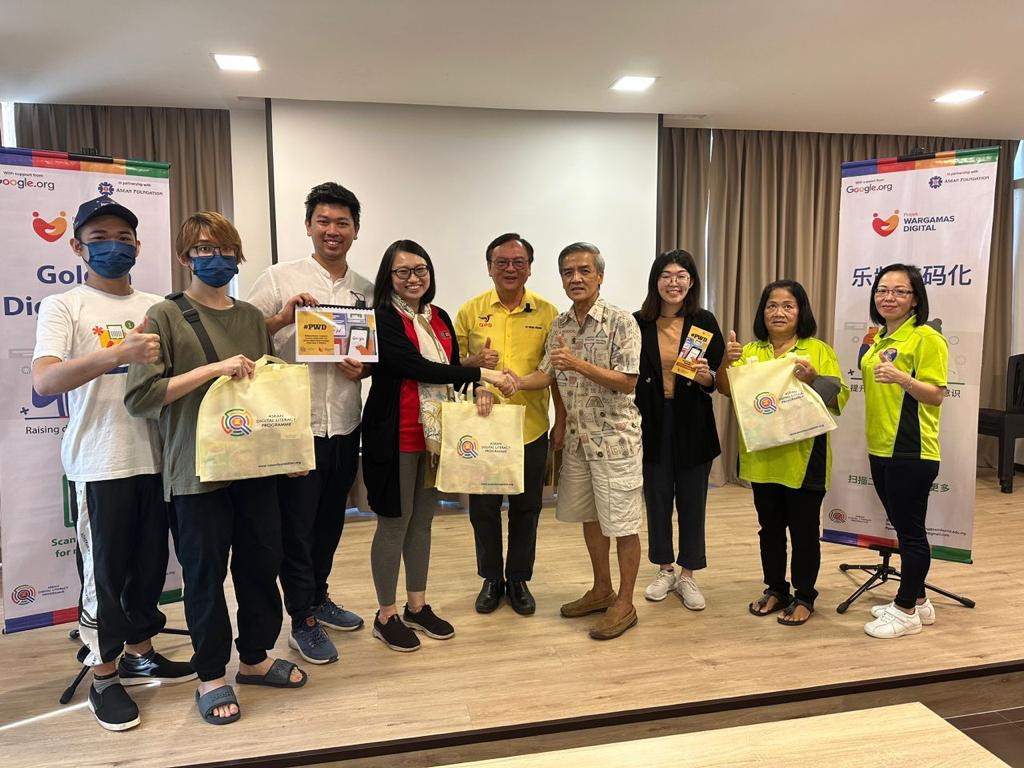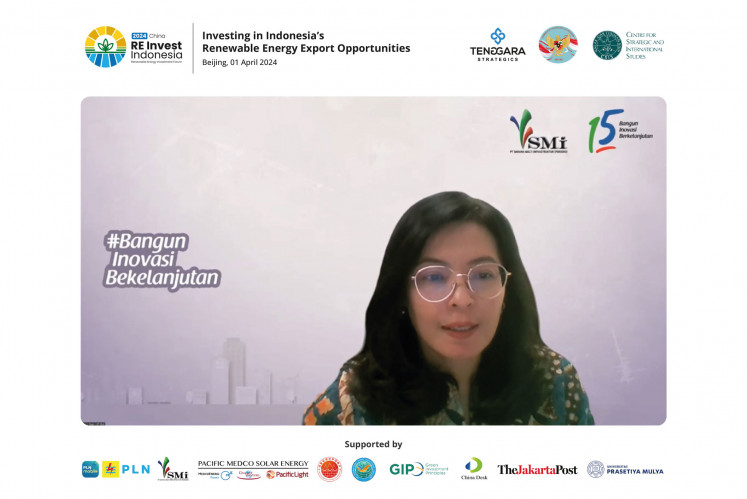ASEAN Digital Literacy Programme paves way to digital literacy for students with disabilities
Change Size

I
n today’s digital age, it is of paramount importance to enable everyone, regardless of their physical condition, to be digitally literate, not only to combat the spread of false information, but to maintain productivity.
It is of no surprise, therefore, to learn that blind students from Sekolah Luar Biasa (SKB) Pembina National University in Jakarta were delighted to join digital literacy activities at their school.
For example, Ryo, one of the blind students, said digital literacy education activities had enabled him to be digitally active to study or play games. “We now know how to protect our data and how to use the internet properly," he noted.
Baim, another blind student, said that he could now use social media apps like Instagram, Facebook and Twitter every day. “I also often browse and watch football matches,” he said.
Sandy, along with some online friends, is now working on coding activities for software development.
The three along with other blind students at the school have established a new and positive habit thanks largely to digital literacy education provided by Ibu Gina Solihat, Ibu Yani, Ibu Yunita Sari Oktavianingrum and Ibu Nisa, master trainers in the ASEAN Digital Literacy Programme, a regional initiative from ASEAN Foundation with support from Google.org to combat misinformation and disinformation through digital literacy training.
According to Ibu Gina, technological assistance has allowed blind students to be productive and proficient in using the internet.
“When using gadgets, they use the talkback feature, also often called the voice assistant. This feature helps blind and low-vision users get voice feedback so they can use their phone or tablet without looking at the screen.”
“The students with disabilities are able to adapt and use technology as well as possible, not only in learning but also in carrying out social media activities with friends,” Ibu Gina said as she explained the incredible impact of the digital literacy program had on the students.
“Initially, they only used cell phones, but now they have started to use laptops for various purposes,” she added.
Because the students are proficient in digital activities on various digital platforms, especially for learning, the four teachers focus now on equipping them with an understanding of online ethics standards.
Despite having their own specialties, the blind students have the same digital capabilities as everyone else. “Precisely with this specificity, there needs to be more intensive guidance on digital literacy for them,” Ibu Gina said.
Ibu Gina and the three other teachers have completed six months of training to become Master Trainers through the ASEAN DLP.
Another key activity of ASEAN DLP is the establishment of the ASEAN Youth Advisory Group (ASEAN YAG). The ASEAN YAG itself aims to roll out a regional and national campaign to combat misinformation and disinformation at the grassroots level.
In total, it has launched twelve projects with an online social media campaign in Singapore, DoubleCheck, and Projek Wargamas Digital (Golden Digital Class) in Malaysia.
The DoubleCheck campaign is focused on educating tweens and teens, aged 10 to 16 years, on the importance of developing digital literacy skills. Meanwhile, Projek Wargamas Digital, which targets the elderly, is focused on raising digital literacy and awareness and combating disinformation and misinformation among senior citizens through four phases conducted from January 2023 to June 2023, namely research and survey, module development, outreach and awareness and findings and publication.
Through the campaign, participating senior citizens are expected to become agents of change to detect, counter and prevent the spread of online misinformation.
“As an educator, I tried to explain carefully in small groups using daily life examples like scam calls and texts. I would’ve been happy if they could absorb 50 percent of the materials to prevent future scams from happening,” said Dr. Miko Chang Lee, who along with Ryan Chua Wei Quan carries out the project through the ASEAN Foundation’s ASEAN Digital Literacy Programme supported by Google.org.
Joanne Tan, a member representing Singapore in the AYAG opined that as the digital landscape and maturity for each country was very diverse, not all approaches are applicable to all countries in Southeast Asia, “yet I also see things we can learn from each other. For instance, our multi-cultural region sees the need for digital literacy content to be localized into different languages, dialects and even sign language. There is no one-size-fits-all solution for the region, but there are many things we can adapt and tailor for each country.”









